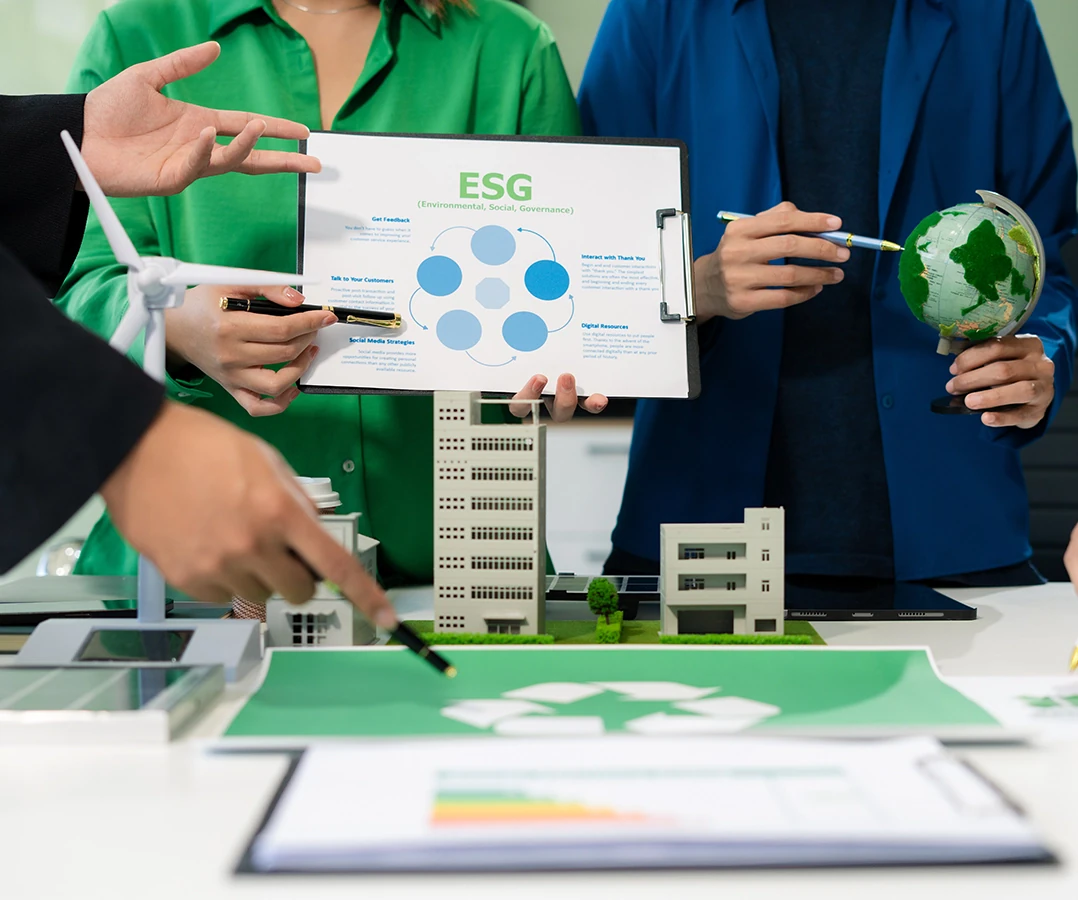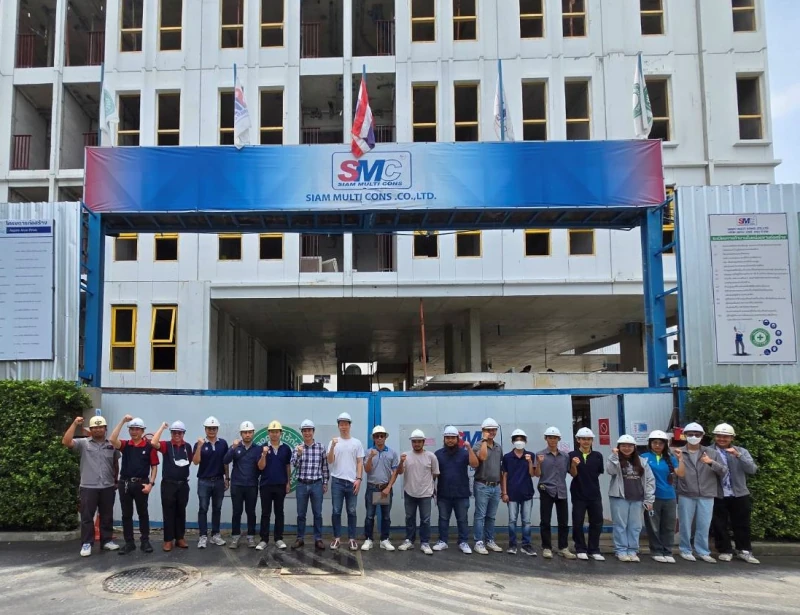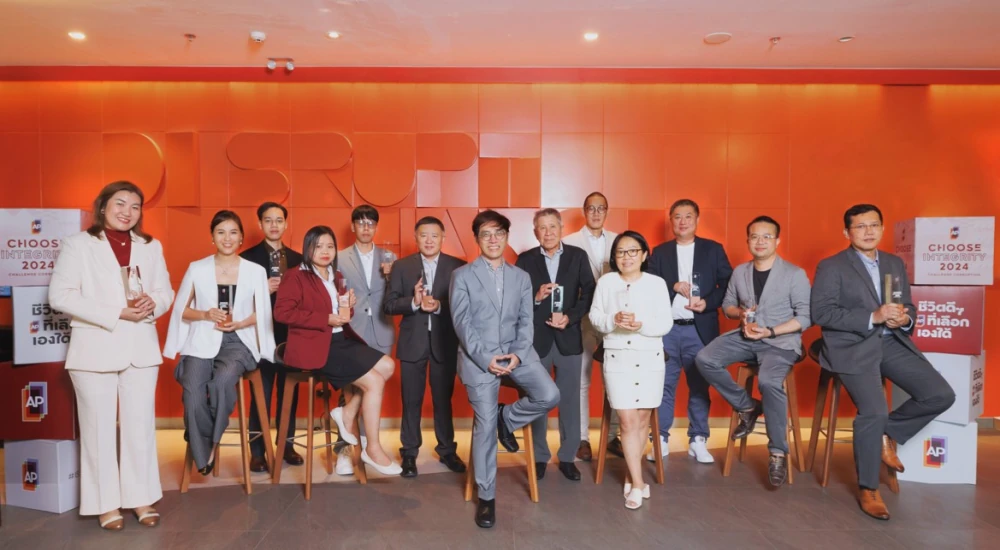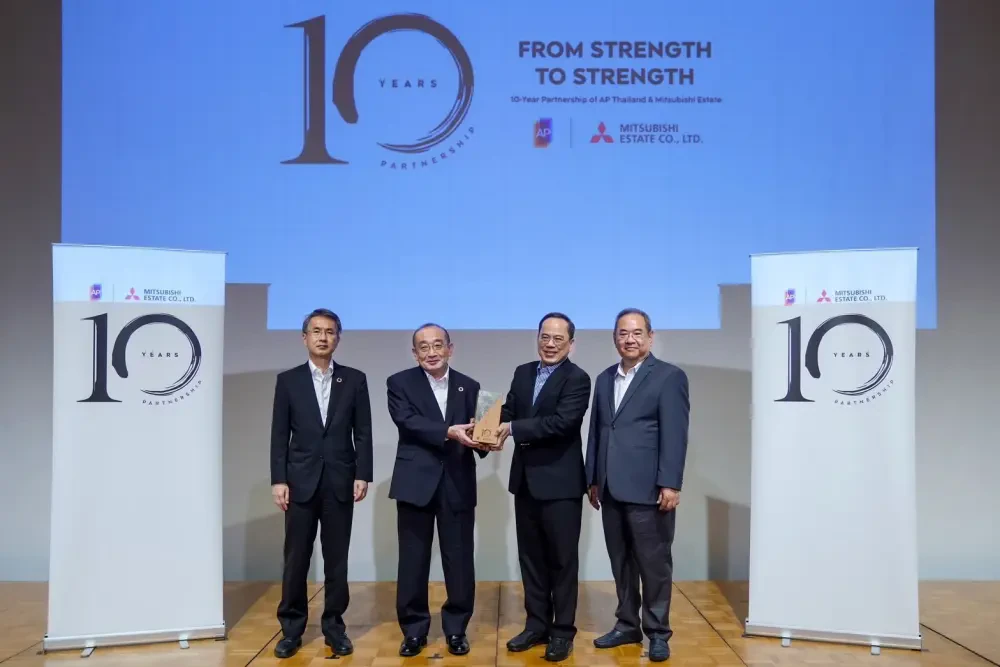
Sustainable Supply Chain Management
Goals
Performance Highlights
Our Commitment
The Company is committed to fostering a sustainable supply chain by integrating social, environmental, and governance (ESG) considerations into its operations. This commitment is realized through close collaboration with partners and the adoption of digital technologies to streamline processes, enhance efficiency, minimize waste, and reduce greenhouse gas emissions. Furthermore, the Company prioritizes the selection and use of environmentally friendly materials to generate positive impacts on ecosystems and local communities.
Efficient supply chain management not only reduces production and operational costs but also plays a vital role in building customer trust and satisfaction. It opens new market opportunities and attracts investors who value sustainability. The Company actively supports its partners in aligning their operations with ESG standards by sharing knowledge and best practices. This approach enables comprehensive risk assessment and management across the supply chain, driving sustainable development at both the organizational and industry levels.
Looking ahead to 2024, sustainability and the digital transformation of society remain key business drivers. The company, therefore, emphasizes the use of digital systems to enhance transparency and traceability throughout every stage of the supply chain. It also encourages partners to integrate ESG principles into their core business strategies. To ensure the delivery of quality products and services that are fit for purpose, competitively priced, and maximally beneficial to both the organization and society, the company has established clear sustainability objectives and practical guidelines for its partners. Together, they aim to build a resilient and sustainable supply chain that extends deeply into local communities and is well-prepared to meet future challenges.
Supporting the SDGs Goals
Stakeholders Directly Impacted
Challenges and Opportunities
In the rapidly changing real estate industry, the Company faces increasing pressure from stricter environmental regulations, higher consumer expectations regarding environmentally friendly housing, and the complexity of managing internationally expanding supply chains. Business partners selection with good sustainability practices is challenging, particularly in assessing and reducing risks that may arise from supplier operations, which could affect the Company's reputation, production costs, and ability to deliver quality products. Additionally, economic uncertainty and volatility in construction material prices are other factors impacting cost management and supply chain efficiency. Changes in national and global policies, such as product carbon footprint laws and circular economy regulations, require companies to adapt to new standards and upgrade required practices for business partners to ensure supply chain operations can accommodate increasingly stringent requirements.
However, sustainable supply chain management creates significant opportunities that help strengthen the Company's long-term capability. Transparency and high operational standards build confidence among customers, investors, and business partners.
Furthermore, adopting technology to enhance efficiency in tracking and managing supply chain data also helps the Company improve production processes, reduce waste, and reduce greenhouse gas emissions, which aligns with the organization's sustainability goals. Additionally, promoting business partners to develop environmental, social, and governance (ESG) capabilities will help create strong cooperation and lead to business networks that can sustainably adapt to market trends.
Management Approach and Value Creation
The company's supply chain management approach covers everything from business partner selection, risk management in procurement processes, and developing supplier capabilities to enable efficient and environmentally friendly business operations. The Company focuses on making procurement processes sustainable by applying governance principles at every step, from assessing business partner qualifications to continuous performance monitoring.
Furthermore, the Company has established measures to support the use of environmentally friendly materials and reduce potential impacts from business partners’ production processes, while also utilizing digital technology to enhance supply chain management efficiency and increase transparency in operational processes.
Supply Chain Management Within the Company
AP Thailand recognizes the importance of internal supply chain management as a key mechanism that drives business agility, enhances efficiency, and enables timely adaptation to change in the real estate industry. The Company places strong emphasis on managing its supply chain comprehensively. This begins since the selection of partners and procurement processes for budget and cost management, as well as ensuring the quality of materials and on-time delivery in accordance with established standards.

Under a well-structured management framework, the Company ensures that operational processes are governed according to the principles of good governance, with transparency and accountability. AP Thailand’s supply chain management emphasizes the establishment of fair operating standards and the selection of qualified and capable partners to ensure business continuity, minimize supply chain risks, and optimize procurement cost efficiency. The Company also promotes the use of digital technology in supply chain management by utilizing a Web Vendor system to reduce process complexity and enhance transparency in transactions with business partners.
Moreover, the Company places great importance on systematically categorizing and managing its partners. These are classified into Critical Tier 1, which includes key partners with high transaction value and direct impact on the business, and Critical non-Tier 1, which includes important partners that support other aspects of the Company’s operations. The Company conducts ongoing monitoring and evaluations to continuously enhance the operational standards of its supply chain and promote greater sustainability.
To ensure that the procurement process is efficient, the Company has established a procurement policy that encompasses key criteria, such as partner selection based on defined standards, contract management, material quality control, environmentally friendly purchasing, and ethical business conduct. The Company encourages its partners to comply with the Code of Conduct for Business Partners in order to build a responsible business network that can grow sustainably together.

Partner Sourcing and Selection
AP Thailand places great importance on a thorough and systematic partner sourcing and selection process. This is aimed at building a stable business network that aligns with environmental, social, and governance (ESG) standards.
The Company selects partners through an Approved Vendor List (AVL) system, using Pre-qualification assessments and ESG Self-assessment as mandatory requirements for all new vendors. This ensures that selected partners have the capability to deliver quality materials and services while demonstrating responsibility toward society and the environment.
In 2024, a total of 37 new partners were evaluated and approved into the AVL system, comprising 25 vendors and 12 construction material suppliers.
In addition, the Company implemented the “Site Visit Vendor” project, which involves on-site visits to assess the operations of new partners. These visits are conducted to evaluate operational readiness, inspect quality control systems, ensure compliance with the Code of Conduct for Business Partners, and verify labor, environmental, and safety practices. In 2024, the Company conducted on-site assessments for 15 vendors, all of whom passed the evaluation with a 100% success rate.
To further enhance the sustainability of supply chain management, the Company also began conducting On-site ESG Audits for key partners (Critical Tier 1). In 2024, audits were completed for 2 out of 54 partners, accounting for 3.7%. The company aims to achieve 100% completion by 2025.
Procurement Risk Management
AP Thailand recognizes the importance of procurement risk management as a key component of a stable and sustainable supply chain. The Company places strong emphasis on systematically assessing the risks of its partners, covering aspects such as quality, delivery capability, safety, and environmental, social, and governance (ESG) factors. This is to ensure that partners can effectively support the Company’s project development while aligning with its sustainability goals.

In 2024, the Company conducted a risk assessment of partners in the construction materials and contractor categories, covering a total of 586 partners. The assessment focused on both operational quality and sustainability. Evaluation criteria were divided into two main categories, as follows:
1. Assessment of business operation risks and sustainability.
The assessment focused on partners’ operational practices in the areas of social, environmental, and governance (ESG) dimensions, using five main evaluation categories, including:
- Corporate governance in accordance with good governance principles
- Shortage conditions
- Focus on quality development
- Safety
- Sustainability and ESG practices
2. Partner Risk Assessment on Quality in Construction Materials and Contractors (AVL)
The assessment focuses on evaluating partner capability, quality, and project support through five key criteria:
- Material Quality
- Delivery
- Installation
- Coordination
- Work processes
According to the 2024 assessment results, all 586 partners
met the evaluation criteria, achieving a
Notably, no partners were categorized as high-risk. The Company continues to follow up on the results to develop improvement plans in collaboration with the partners. Moreover, to enhance transparency and auditability, the Company has planned to conduct annual partner risk assessments and develop additional assessment tools in the future.









